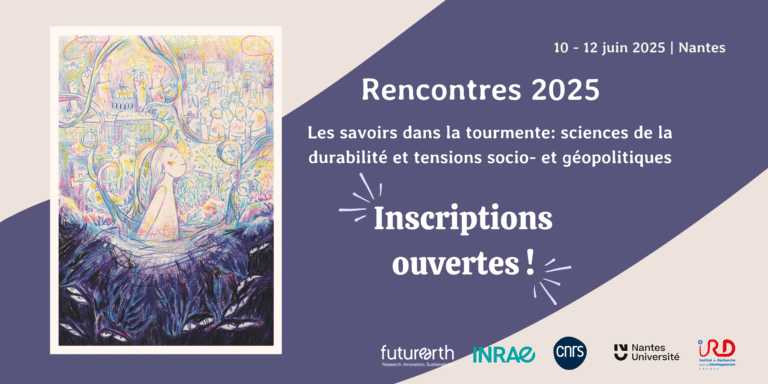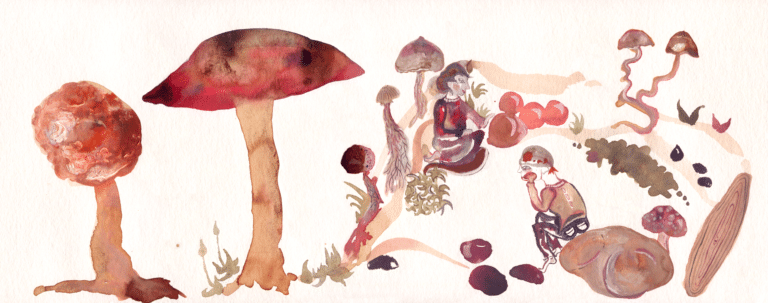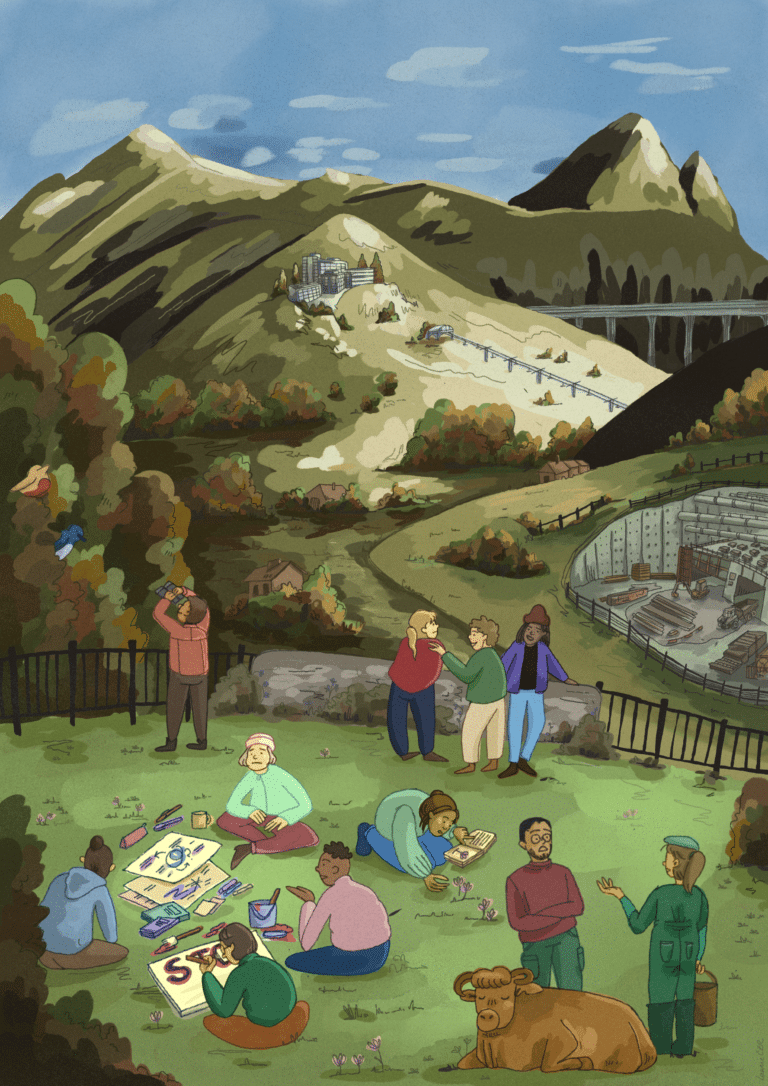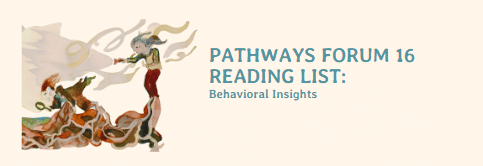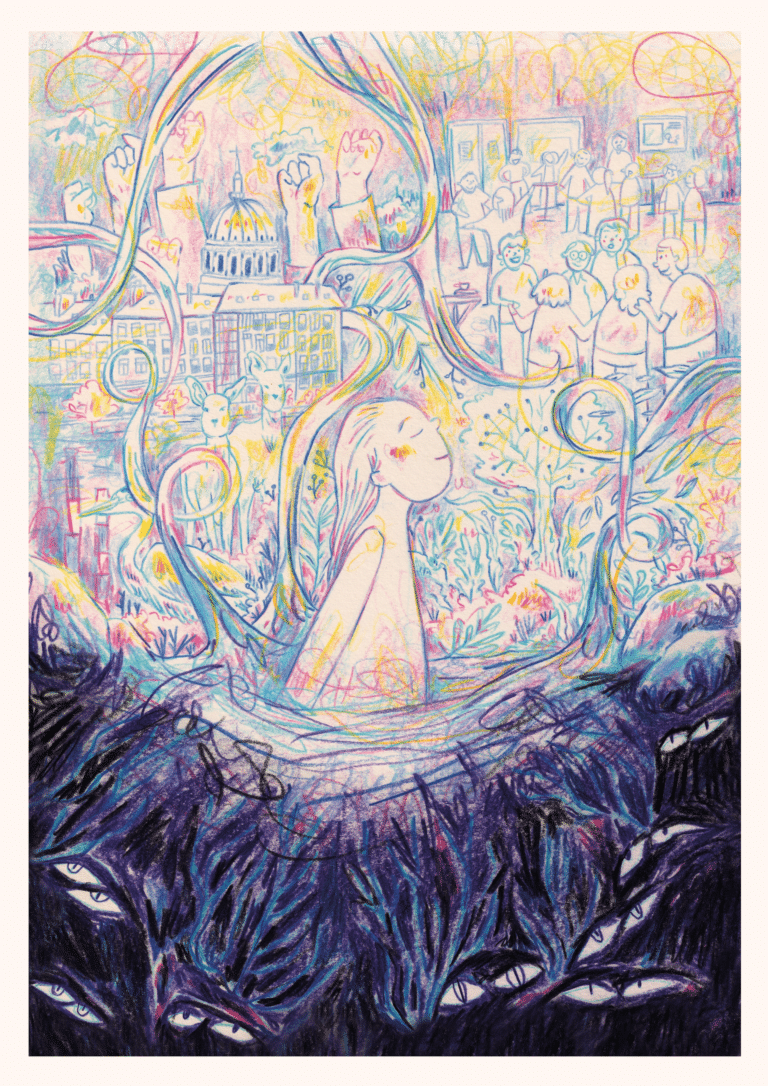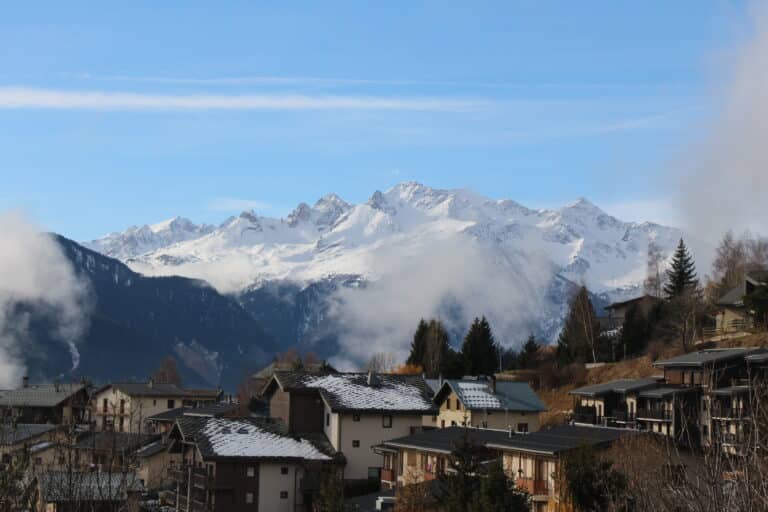The 2024 Autumn School
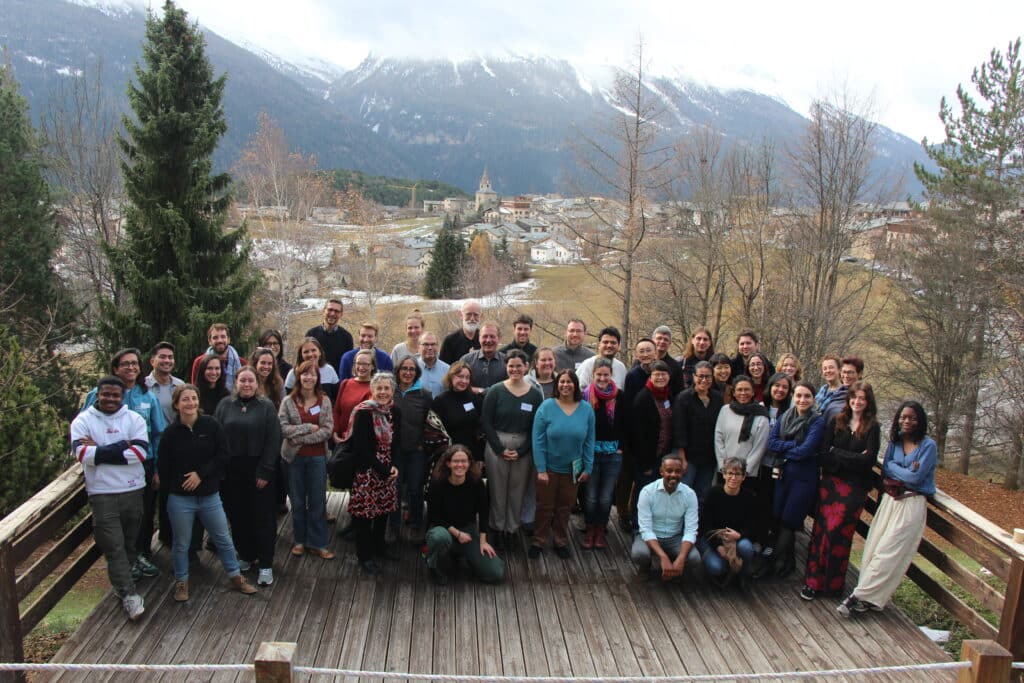
As plates were cleared and glasses refilled, the dinner conversation meandered between green energy, research ethics, family recipes, and environmental linguistics, setting the tone for the 2024 Pathways Autumn School. Over five days in Aussois of the French Alps, 50 scientists, including 29 early career researchers that represented 23 different nationalities, came together to explore how inter- and transdisciplinary collaborations can drive societal transformation for a just and sustainable world. Addressing the intertwined challenges of environmental and human crisis demands perspectives from every corner of academia and beyond. Through workshops, keynote sessions, and spirited discussions, researchers from fields as diverse as statistics, law, psychology, geochemistry, geography, ecology, and economics were guided by the question: how can we shape conditions for a « good life » for all within planetary boundaries?
The Diversity of 2024 Alumni
One-third of the early career researchers represented each major academic realm: natural sciences, social sciences, and interdisciplinary studies setting the stage for a dynamic and collaborative environment. This balance enabled robust discussions around research practices, ethics, and communication. Despite the weight of the issues at hand, the atmosphere was positive and focused on renewed and sustainable practices to the problems we are facing.
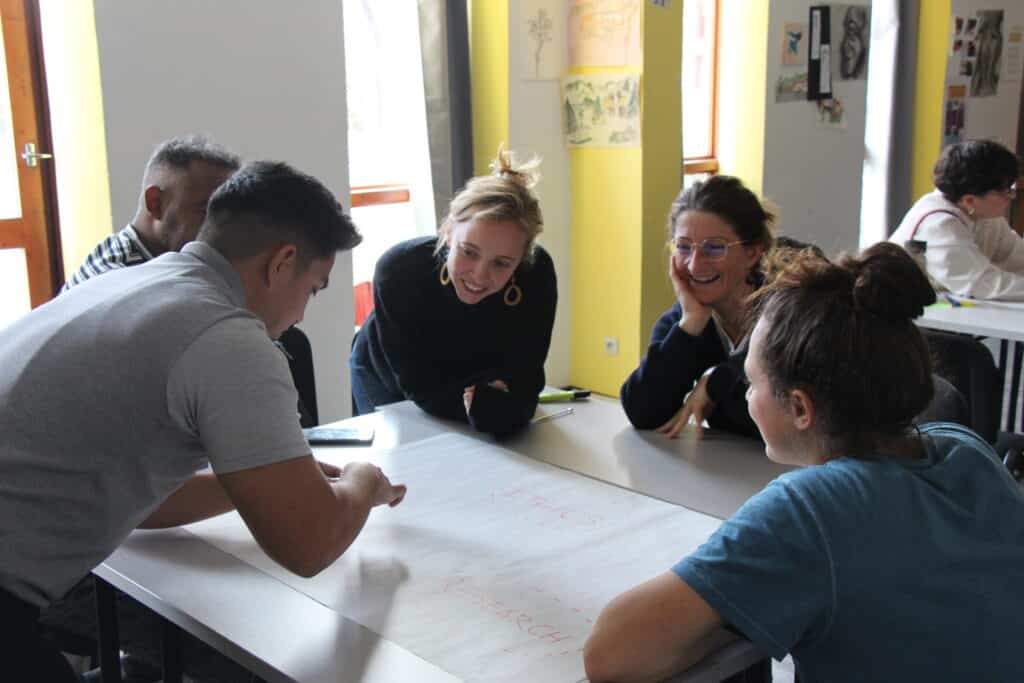
“Interdisciplinary spaces like this one are rare,” said Ahmed Alhusseen, a researcher in community-based urban sustainability. “At the beginning at my workplace, I was struggling to find a common ground with colleagues’ methodologies from different fields. But now communication is smooth and within this autumn school it is easier.”
Beyond Research: Building Bonds
“It’s knowing people beyond a presentation,” shared Molly Coyle, a researcher focused on working-class inclusion in environmentalism. “There’s just as much value in the spaces between the sessions—walking to the next activity together or chatting over a meal.”
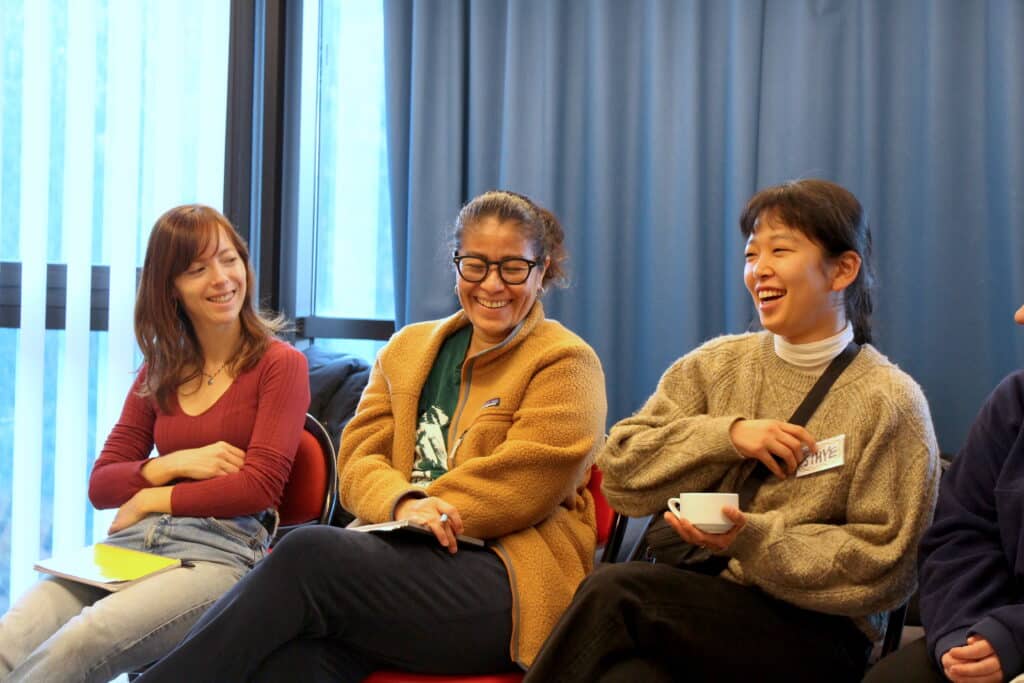
The week’s structure fostered connections that went deeper than professional networking. By sharing a living space, participants and speakers alike bonded as people first, researchers second. A field trip to a nearby fortress, self-organized hiking adventures, and impromptu coffee break discussions created opportunities for camaraderie that transcended academic boundaries.
These connections promise to spark future collaborations across disciplines, geographies, and cultures. As Mars Edwenson Briones, a researcher in the environmental humanities and disaster studies, noted, “What made the school unique was the minimal hierarchy between speakers and participants. We built relationships not just with fellow students but also with the experts leading the sessions.”
Rethinking Research: Transformative and Interdisciplinary
Transformative research pushes beyond describing problems—it seeks to drive real-world change. This approach requires adapting methods to specific contexts and embracing the complexities of diverse perspectives. As a result, researchers define ‘transformative research’ differently according to their specialization. But having a mix of perspectives makes transformative research discussion all the more fruitful, as participants noted.
“While we may not share the same theoretical backgrounds, we often aim to practice the same principles,” observed Berta Roset Pérez, who works on participatory processes for transformative research, “Interdisciplinary spaces like this help us build consensus around actionable outcomes.”
Shonali Pachauri, a keynote speaker researching inequalities in energy transitions, added, “Exposure to a different discipline or viewpoint can be a lot to absorb in a short time, but it sparks ideas.”
Bridging Perspectives: Listening to the Locals
Throughout the week, participants engaged in workshops, keynote sessions, and collaborative discussions. One standout moment was a workshop hosted by Vincent Virat, a facilitator from Inclusive Innovation, involving local stakeholders, who shared their lived experiences and challenges facing the region’s ski economy in the face of waning snow and hotter winters. The workshop had a spread of speakers coming from opposing perspectives: A mountain sports organizer, Marie de Araujo; 3rd Deputy Mayor of Tignes and officer of urban development, Hubert Didier-Laurent; a Haute Maurienne Vanoise regional officer of culture and tourism, Solène Raffort; and an environmental activist leader of Resilience Montagne, Valérie Paumier, all shared struggles of their hometowns. Put together, their stories crafted a larger history of the economy, society and climate in the Alps. This session bridged theory and practice, allowing researchers to apply lessons to a tangible issue rooted in place.
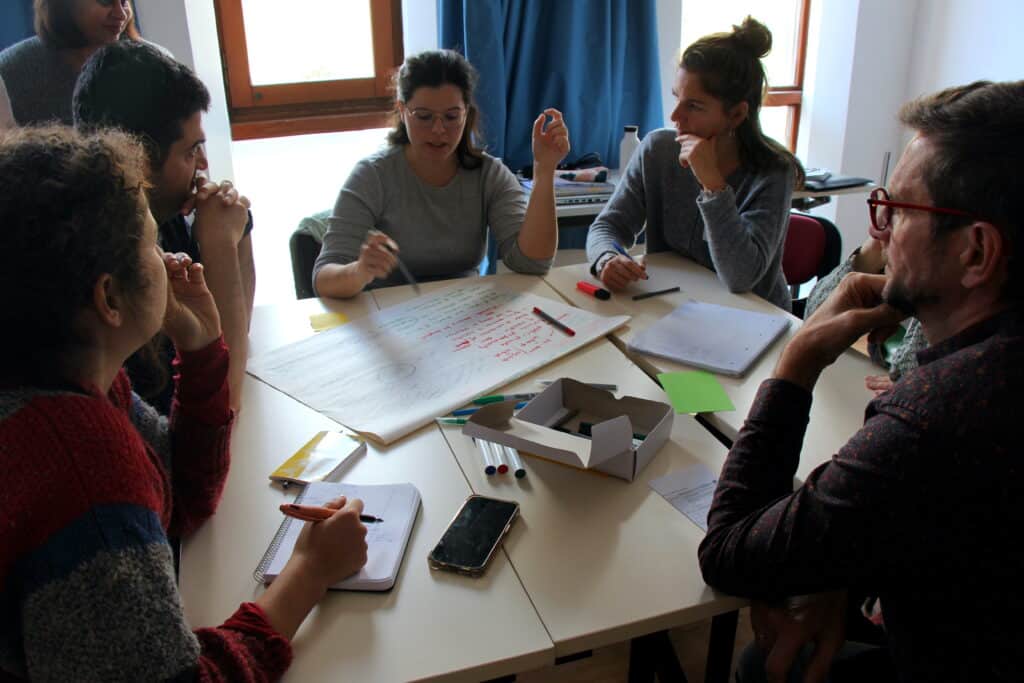
“This Autumn School was unique in many ways,” continued Ahmed Alhusseen. “The transdisciplinarity stood out, especially from the participants’ backgrounds and today’s meeting with local actors. It showcased the real-life application of what we’ve been learning.”
Another highlight was a visit from Aristide Athanassiadis, a researcher-turned-podcaster who runs the popular show Circular Metabolism. Athanassiadis conducted a live interview with some of the speakers, demonstrating creative ways to communicate research to broader audiences. His presence exemplified the growing need for innovative outreach methods to engage the public in sustainability science.
Reflections: The Rewards of Collaboration
“I’ve found productive tensions between the various fields represented here,” remarked Mars Edwenson Briones. “People are coming from different positions and that opens opportunities to try to recalibrate how I approach questions in my field.”
Creating a truly interdisciplinary space is not without its challenges, but the result from that effort will hopefully continue to grow. The connections that scientists established here can persist past the Autumn School, into future projects and reflections. As we look ahead to 2025’s program in Aussois, we are eager to build on this year’s successes—to create a space for the European sustainability science community to develop their research practices and make a greater contribution to societal transformation.
The School was organized by Future Earth France and is a collaboration with the French National Committee for Future Earth (CNFCG), the German Future Earth National Committee and with BOKU, ICTA-UAB and Future Earth’s Earth System Governance, Global Land Programme and Global Mountain Biodiversity Assessment. Hosting support came from from CNRS. For more information on keynote speakers and the program, go to the Pathways Initiative’s LinkedIn and Website.
Article written by Kathryn Kaiser. Published 20 January 2025.
